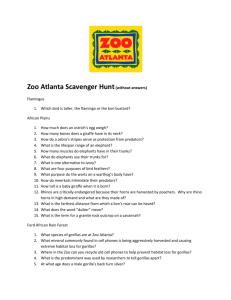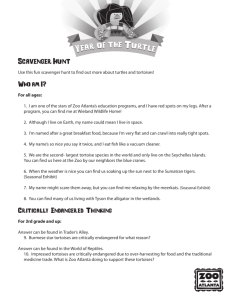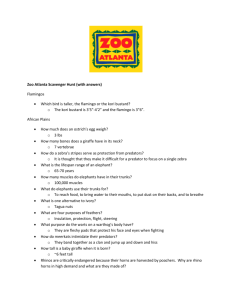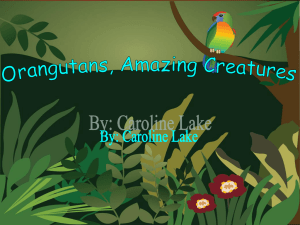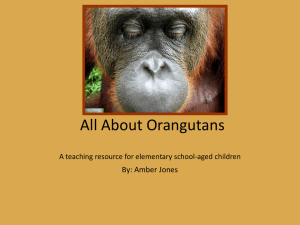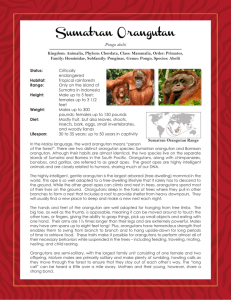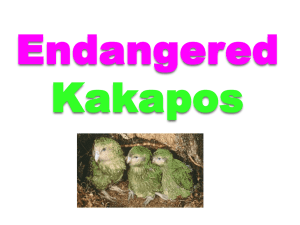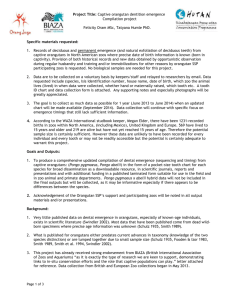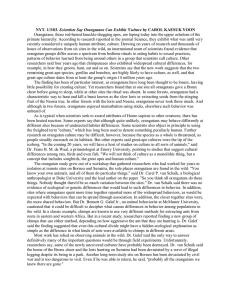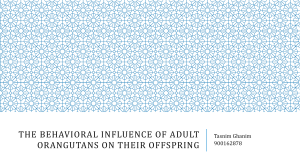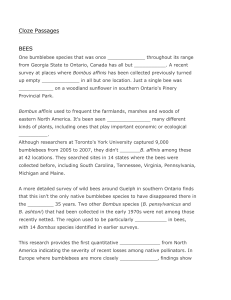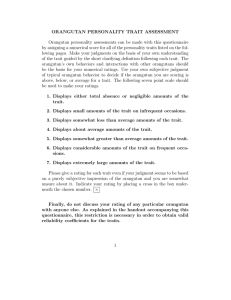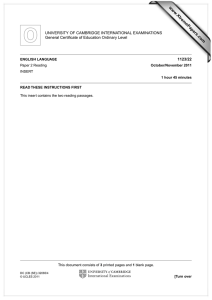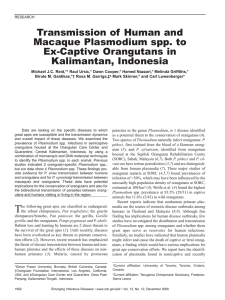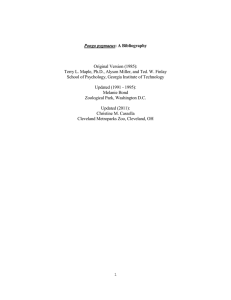Sumatran Orangutan Exhibits
advertisement
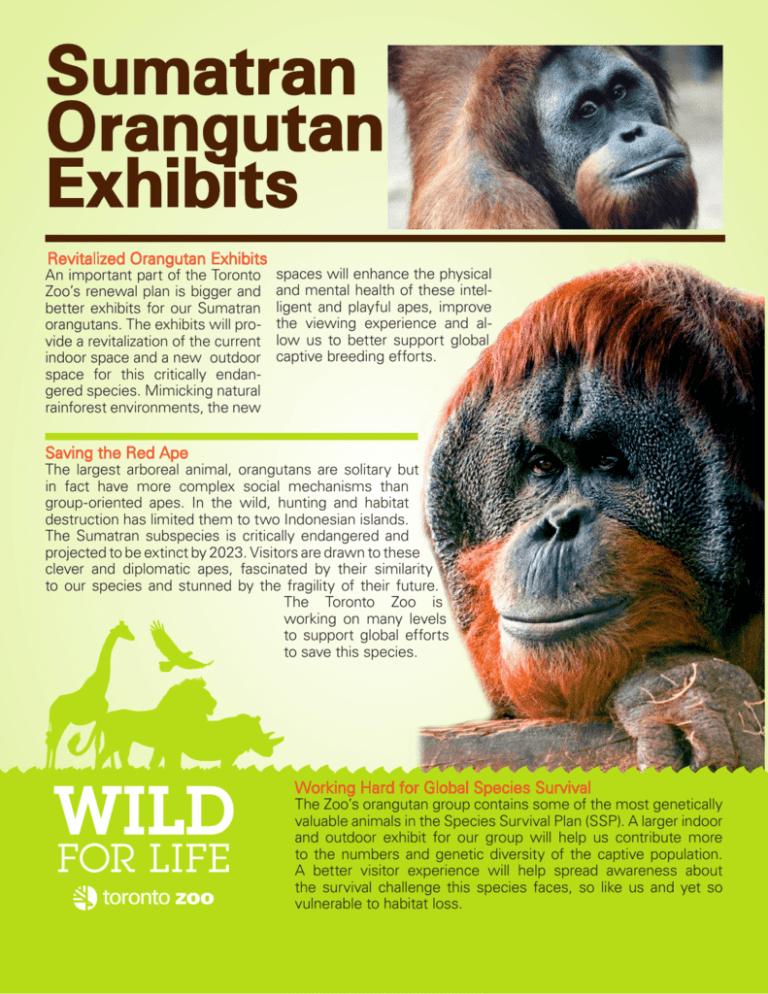
Sumatran Orangutan Exhibits Revitalized Orangutan Exhibits An important part of the Toronto Zoo’s renewal plan is bigger and better exhibits for our Sumatran orangutans. The exhibits will provide a revitalization of the current indoor space and a new outdoor space for this critically endangered species. Mimicking natural rainforest environments, the new spaces will enhance the physical and mental health of these intelligent and playful apes, improve the viewing experience and allow us to better support global captive breeding efforts. Saving the Red Ape The largest arboreal animal, orangutans are solitary but in fact have more complex social mechanisms than group-oriented apes. In the wild, hunting and habitat destruction has limited them to two Indonesian islands. The Sumatran subspecies is critically endangered and projected to be extinct by 2023. Visitors are drawn to these clever and diplomatic apes, fascinated by their similarity to our species and stunned by the fragility of their future. The Toronto Zoo is working on many levels to support global efforts to save this species. Working Hard for Global Species Survival The Zoo’s orangutan group contains some of the most genetically valuable animals in the Species Survival Plan (SSP). A larger indoor and outdoor exhibit for our group will help us contribute more to the numbers and genetic diversity of the captive population. A better visitor experience will help spread awareness about the survival challenge this species faces, so like us and yet so vulnerable to habitat loss. Critically Endangered Sumatran orangutans are critically endangered. The total population of the Sumatran orangutan is less than 14 percent of mid-twentieth century numbers. The rainforest home of these apes is diminishing due to logging, mining, forest fires, fragmentation by roads and palm oil plantations. Driven by international demand for palm oil used in cooking, cosmetics, mechanics and biodiesel, companies cut down vast areas of tropical forest, replant the land with oil palms and force animals from their natural habitats. Breeding Initiatives Currently, the North American captive population consists of 82 Sumatran orangutans, (70 are currently part of the SSP), with a target population of 100 animals. Building a larger exhibit for our group and improving physical and mental health through access to outdoor spaces should result in a higher fertility rate for our females, as mental and physical health play an important role in reproduction. By increasing the number of Sumatran orangutans born at the Zoo, we can help to advance the SSP captive population goal for this critically endangered species. Fifteen orangutans have been born at the Zoo with Jinnga, Kembali and Budi the most recent births in 2006. Inspiring Exhibits The exhibit will provide: • An expanded and redesigned indoor Borneo-Sumatran Rainforest habitat, including natural habitat features and a possible mix of species • A new outdoor area that will more than double the living space and contribute greatly to our animals’ overall health and well-being Budi (born in 2006), enjoying his afternoon snack in the current indoor exhibit. • Better enrichment elements such as cables and platforms, a tunnel and possibly an orangutan O-line in parallel with a visitor zip line • An improved visitor experience through better lines of sight, more interesting natural structures and more engaging interpretive features. Kembali, one of three siblings born in 2006, enjoying a day lounging in the current exhibit. Become a Partner in the Survival of Wildlife Species This project is an investment in the care and well-being of our cherished group of orangutans. Partnering with the Zoo demonstrates your organization’s commitment to public education and the survival of species at risk. We invite you to take part in this unique opportunity to invest in a $3 million fundraising goal to build a premier facility that will define excellence in wildlife care and exhibitry for years to come. Get Involved Today! Contact the WILD For Life Campaign team at 416-392-9113
